Worship and Revelation 4-5 – Part 4 – Implications
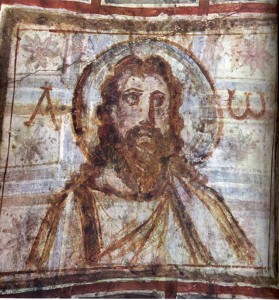 Last time we carefully read through a heavenly scene in which Jesus is exalted to God’s side and worshiped alongside him.
Last time we carefully read through a heavenly scene in which Jesus is exalted to God’s side and worshiped alongside him.
We saw that it is indisputable that Revelation 4-5 holds forth Jesus as worthy of being worshiped.
But can this help us choose between the dueling arguments from the first post? Yes!
Given that we accept that Jesus ought to be worshiped, we must choose between Only God should be worshiped and Jesus isn’t God because we can’t consistently accept both of these, in addition to the claim that Jesus ought to be worshiped.
Based on our careful reading (Part 2, Part 3) of Revelation 4-5, let us ask which of these John would agree with?
Would John agree that only God should be worshiped?
Plainly not.
- Jesus is presented throughout as someone else. In these chapters, he comes into God’s throne room, receives the scroll of God’s secret plans from God, and is then honored alongside God.
- God, the one on the throne, silently approves of all this. He lets Jesus take the scroll. It is his mission that Jesus accomplished, because of which Jesus is worthy to now be exalted. And he stands by while people worship both him and Jesus. And he does not thunder “You lousy idolaters” – worship only me!” And he, he tacitly approves of this exaltation of Jesus.
- Smartly, the people present agree. (v. 14) No one calls out God Read More »Worship and Revelation 4-5 – Part 4 – Implications
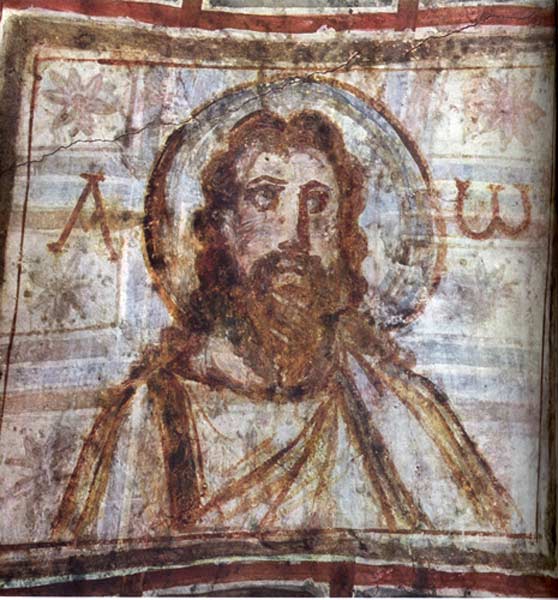

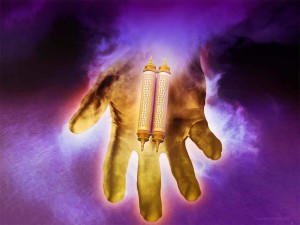
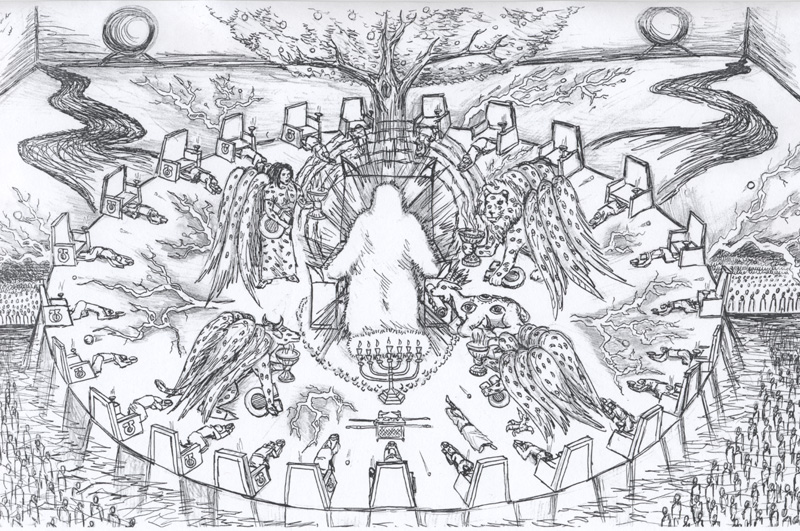
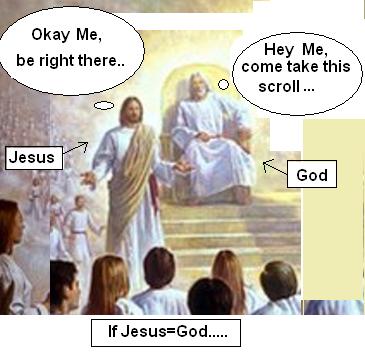


 In discussing the Trinity or Incarnation, I often have an exchange which goes like this:
In discussing the Trinity or Incarnation, I often have an exchange which goes like this:

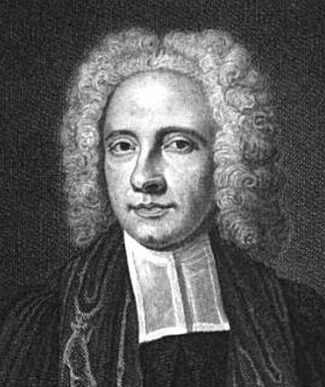




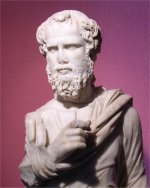



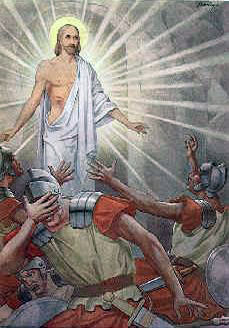


 Over at
Over at